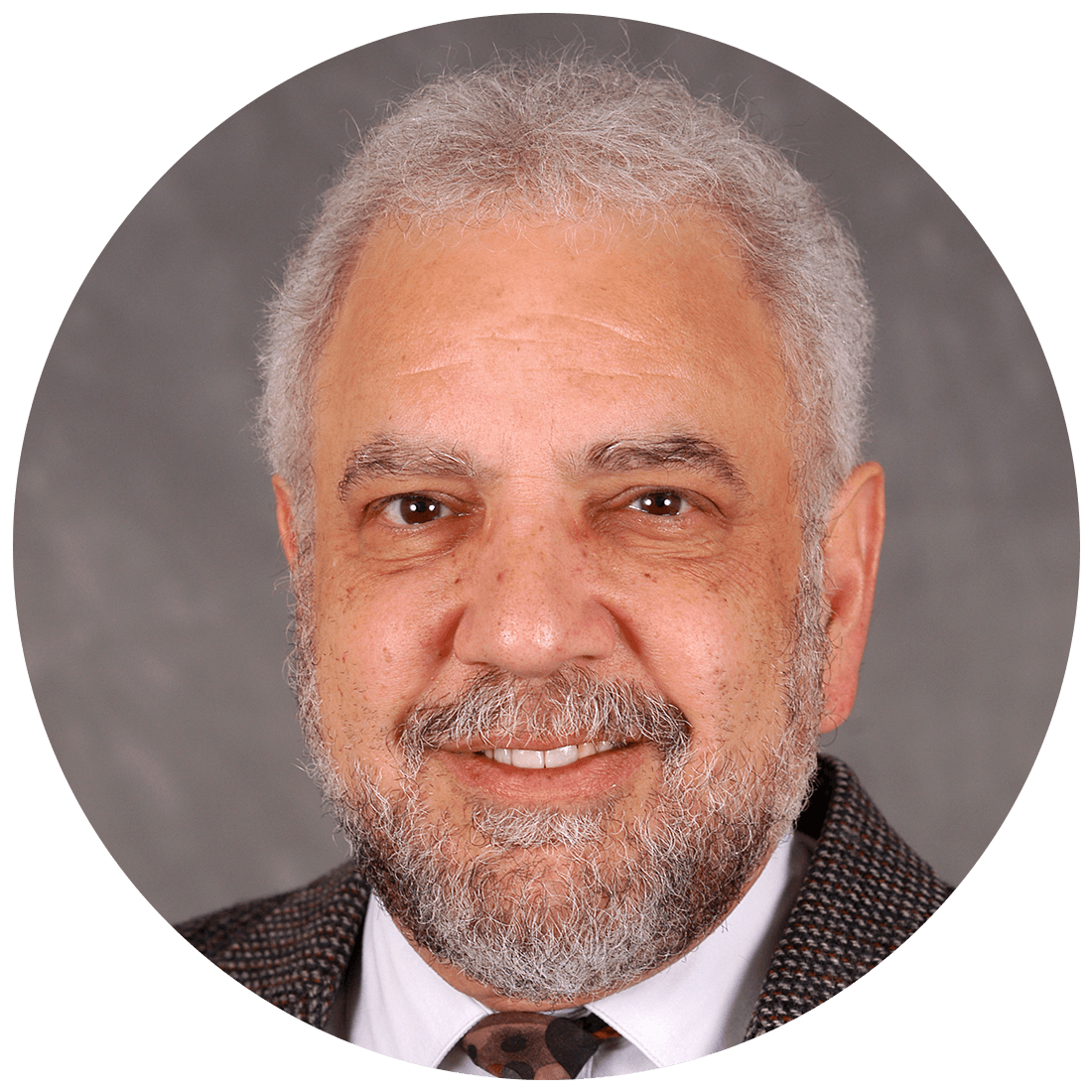NATALIE GALLAGHER

As we consider our issue theme of conversations, each of us at SixByEight Press took a little bit of time out of our days to engage in open dialogue with writers, collaborators, and mentors from our own personal and professional lives. We hope that in having these open-ended chats, we can reflect upon and gather a few key lessons from this most human of rituals.
In this piece, editor Natalie Gallagher talks to her mentor, Professor Emeritus of Psychology in Georgetown University, Dr. Steven Sabat.
Hi Dr. Sabat, thanks for making the time to talk to us!
How did you come to love teaching?
Dr. Steven Sabat
As a child I remember paying attention to my really good teachers. They were so compelling, because they were so good, that I would watch what they were doing and how they did it, and I was studying them. It was unconscious, but by the time I got to junior high school, I started paying more attention to those good teachers and felt inspired.
In high school, this guy Richard Kaye was our world history teacher for one semester. He was this breath of fresh air because he was so engaged and excited about teaching us, and he was involved with us, and treated us like people. You wanted to do well for him, because you felt like “he would be disappointed in me.” I was really inspired by it, and that’s when I came home from school one day and I just said to my mother out of nowhere “I think I was cut out to be a teacher.” It was something that I felt I really wanted to do, and that’s the reason that I got a PhD.
What do you think those teachers were doing? What’s the behavior, or the emotion?
Dr. Steven Sabat
Richard Kaye was just — he was very energetic, but he has a soft voice, relatively speaking. He was so deeply involved with us. He would give us ways of remembering things because they were important to him. It was important to him for us to know stuff because he was committed to making the world better. He was just an enthusiastic person — what he loved to do was to challenge the status quo. He loved to challenge the party line on anything. He wanted us to challenge that stuff. Don’t just listen to somebody say something but ask, “Why do you say that? What’s the logic behind what you’re proposing?” I guess it’s a matter of thinking critically, but those were not the words I would have used at the time. It was really just challenging things and asking why.
Ms. DiBiase was the same way — she was my science teacher in ninth grade — she was powerful. She challenged us at every minute. John Marcatante, who was an English teacher, he was different in the sense that he was very quiet and gentle in his way of being. Never raised his voice. This was with people who were just chatty and making noise all the time — ninth grade, I mean, shoot, we were 13 or something. He never had to raise it. He made [learning grammar] fun. He was engaging and at the same time was saying, “You can do this stuff. And you need to do this stuff, because you’re going to be citizens one day.” And that’s something Mr. Kaye said too, “You’re going to be citizens, and you need to be able to think clearly and able to express yourself in a way that is understandable by others.”
I had a professor in college — one professor who actually taught at Queens College the whole time, his name was Jack Kirman and he taught abnormal psychology. He’s the only member of that psychology department who made psychology interesting to me. It’s true! I used to say I was a psychology major in spite of my professors.
But Kirman was great. He was a Freudian – and this is a time when Freud was falling out of favor in favor of behaviorism — but he was so interested in this stuff, and made it compelling because of how he asked questions and made us think of those questions. He wasn’t saying, “You should believe this,” he was more like, “Isn’t this fascinating?”
I think that was one of the things that every one of them did. They were engaging, they were interested in us as people, but they were also in love with their discipline. It was such a thing to be a young person who is witnessing somebody who is absolutely enthralled and engaged with what they’re doing and who seemed to love their discipline. And it was, I guess, inspiring. You could make a living and love what you do.
When you’re talking about passion for your own discipline — is that connected to having a better story about it, instead of just a lot of separate pieces of information?
Dr. Steven Sabat
The first half of world history was taught by this young woman. I’m now repressing her name. She was one of these robotic-type teachers. At the beginning of each class would write “The Aim of Today’s Class Is…”. It was so boring, it took the wind out of my sails. It was factoids! It was names and dates and places and all that. By the time the year was half over she had to leave for maternity leave. That’s when Richard Kaye showed up, and he was — it was much more storytelling. It was “hiSTORY,” you know?
What happened in World War One? We came to learn, oddly enough, that this is a bloody family feud. The King of England and the Kaiser of Germany and the Tsar of Russia and the Archduke of Austria, these were all part of the same family that were pissed at each other and they made a war.
Kirman was the same way, when he talked about Freud. It was stories about how Freud came to understand about the unconscious and dreams and think that way.
PSYCHOTHERAPY – Sigmund Freud | Source: © The School of Life/YouTube
That’s what I wound up doing myself: I would start a class with some large picture or something, with some question that could be on anybody’s mind, or at least the question itself is accessible. It’s a question about X. That’s the way to do it, you grab somebody’s attention with something that’s familiar. People also remember the information better if it’s in a story, than if they memorize a bunch of facts for class.
From the perspective of the person teaching, we’re looking at a bunch of faces. There’s a big difference between looking at a bunch of faces that look like the students in Ferris Bueller’s Day Off, and looking at faces where the eyes are alive. And people are really looking, because you’re looking at them. It’s looking at these faces and wanting to see engagement.
I’m not talking to you because I’m a glutton for attention, I’m looking at you because I am talking to you as a human being. This [class topic] is something that I think is compelling and important, and you can come to your conclusions about what it means to you or how you might want to use it, but at least you have it. You don’t know what it means to be without something unless you’ve had it.
I wonder how you would think about disciplines which are more or less certain. For science in particular it feels there’s a responsibility of communicating uncertainty or communicating how much certainty there is.
How would you think about that in connection to storytelling?
Dr. Steven Sabat
If I were doing history, I think I would start out [with] a great line from Harry Truman, who was asked once, “What do you do as a President in situations where you’re really at sixes and sevens?” He said “Well, I read Plutarch. The only thing new in the world is the history you haven’t read yet.” It’s all happened before in one or another way.
Again, these are stories. Here’s the story that was reported about this, and here’s the story as reported by this person and that person. In that way, what you’re doing is helping people look at things and say, “I can understand that 2 + 2 = 4 and not 5 or 3 or 12, because that’s the way numbers work. But, if somebody tells me that so-and-so is a great president, well, all right then. That may be true from that point of view of that so-and-so.” Now we have to start to think and analyze the data. Put meaning on it.
How much did it mean that John F. Kennedy was a philanderer? Or, more, perhaps importantly — what did he really do in terms of civil rights? He was inspiring to people I know. But what would his legacy have been if not for Lyndon Johnson, who made the civil rights law and the voting rights law happen (much to the chagrin of his friends in the South). Science by its nature says “we have to doubt,” but even when it comes to something like history, you can’t just take one point of view about that subject. It’s like playing telephone for heaven’s sake.
So not just telling a story in class, but emphasizing that these things are communicated through stories.
I was talking with Kate de Medeiros. She’s a professor at Miami University of Ohio, a gerontologist. She does a lot of narrative work on aging, and she’s really terrific. She was telling me this story [about a] well-published cognitive psychologist. Kate tells me that he says to her, “Oh, you’re just telling stories.”
So I said to Kate, if he ever says that to you again, say to him, “Do you publish in peer-reviewed journals?” And he’ll say, “Of course! How do I get to be a professor?”
“And do you publish in really good journals?”
“Yea, yea.”
“And you publish articles, is that correct?”
“Yes.”
“Well, you’re just telling stories, too. Your stories are about processes, and my stories are about people.”
But they’re stories. They’re different stories, different kinds of stories, but they’re stories.
Have you ever found a time where the requirements of the professor role conflicted with what you as a person might have done in that situation?
Dr. Steven Sabat
I’m thinking immediately of something that would be exasperating — where a student would say or do something that I found personally quite objectionable, and because of the role I was in, I couldn’t just say something like, “That’s a lot of bullshit.” I couldn’t, because I had to be better than that. My job was not to vent and express my utter disdain in an anvil-on-the-head way, it was to educate the person so that he or she would see that this is not the way to be. You can’t do that if you’re hitting a person over the head. They’re not going to hear what you’re saying.
I think that’s one of the reasons why that I’ve said on many occasions that dealing with students has made me a better person than I might otherwise have been. Because I was putting their welfare before my own outrage.
Are there other cases where something you learned through teaching was specifically applicable outside it?
Dr. Steven Sabat
When you’re teaching, it’s clear that some people don’t necessarily get your point when you make it the first time. You can’t just repeat what you said, because that’s the problem. You have to say it in another way so it’s more accessible, so it will connect. That was something that I found invaluable when it came to working with people with Alzheimer’s disease or dementia. I would ask somebody something, and the person looks at me blankly. Now I’ve got to say it in a different way, because the person isn’t getting it. So I’m attuned to trying to find different ways of saying the same thing so that it will make contact with somebody. It’s part of me to do that.
Are particular times where you thought you might have made a mistake? How did you deal with that?
Dr. Steven Sabat
There was a day and I was getting ready to go into general psych. And the class was going to be on heritability and IQ. And maybe 15 minutes before I was going to head down the hall, I get this phone call from a friend of mine. We hadn’t spoken in a number of years. I knew the guy for a good 10, 12, years. He told me that that weekend he had contemplated committing suicide and he worked out a way to do it so it would look like an accident, so the insurance payments would go to his family. But at the last minute he decided to call his therapist instead.
So I chatted with him and then I had to go and I told him I’d get back to him. But I had to walk into a classroom with that. And the lecture was so botched, it was really bad. It was a Wednesday. So the following Monday I came into class and said, “Oh, well, how many of you found last class confusing?” And this sea of hands came up. And I said “Well, I’m really sorry about that.” And I explained, I told them what had happened. And I said, “So, what I’m going to do now is give you that lecture the way I should have been able to do it.” And I did it, and they got it, and at the end I said, “Is that clear now? Anybody feel better?” And all these hands go up.
I knew I had done something badly, and I didn’t want to present myself as a person who — as a professor — would let that pass and not say anything about it, ignore it, not even care about what they might think or how they might feel or what they didn’t learn.
Have you had a time where a student pointed something about your teaching that had an effect on the situation or how you approached teaching in the future?
Dr. Steven Sabat
This was early on at Georgetown, after my first or second semester. I was very enthusiastic, you know, and at the time I was trying to get them to see that X was a really good way to think. In the course evaluations that came back, one person wrote, “He should check out Professor Beauchamp in Philosophy about how to give a lecture,” something like that. It was my second semester. That was the spring.
So the next fall — I knew Tom Beauchamp — he was teaching a class called ethics and biomedicine. I asked him if I could sit in on a class — it was a class of about 80, so it wasn’t a discussion group where people would be inhibited by having some other professor there. I was taking notes just like everybody else.
What I wound up learning was what that person wrote on the course evaluation. Beauchamp was presenting different points of view — the utilitarian point of view, the deontological point of view about this issue and that issue — but he was presenting these things so veridically. He was presenting these different points of view in ways that an adherent would present it. So that it was really up to us to have the best of all of this and then come to our own conclusions. That was really, really, helpful to me — and I had to learn how to do that. That became a guidepost for me.
For folks who are trying to figure out how to do this — how to teach, how to mentor, how to communicate science even — if you had two or three pieces of advice, what would they be?
Dr. Steven Sabat
The first thing is that — you always gotta put the other person first. There’s a reason for doing this. There’s something I have to impart here that may help you in the living of your life. When you come to it from that perspective it takes the whole effort to an entirely different level. This is not about making a dollar or getting a grade, it’s not about anything that base — it’s about: you’re going to inherit this world, and I want for you to be able to appreciate life in ways you haven’t before. You might be a better person or a better citizen as a result, and that really matters.
The other thing is to be a person. To be an actual person who can admit to making a mistake, who is fallible. If you point out something I did incorrectly — I’ll admit it, and I’ll say, “I’m not perfect, I’m a work in progress just like all of us in God’s spherical mental institution.” It’s really about being vulnerable in that sense, that you don’t have to be right about everything, and you can thank somebody for pointing something out.
Or saying — this is not school, this is your life. It cuts down all these stories people have in their heads, about what this is and what they’re doing. I have heard people say, “Oh shit, I have to go study” but I have never heard anyone say, “Oh shit, I have to go learn.” So what’s the story that you’re making out of this situation? Depending on the story, you will act and be in one way or another, and it’ll be a really good story or it’ll be one you wish ended before it began.
2015 Spring Faculty Convocation | Source: © Georgetown University/YouTube
Thank you so much for your time!





